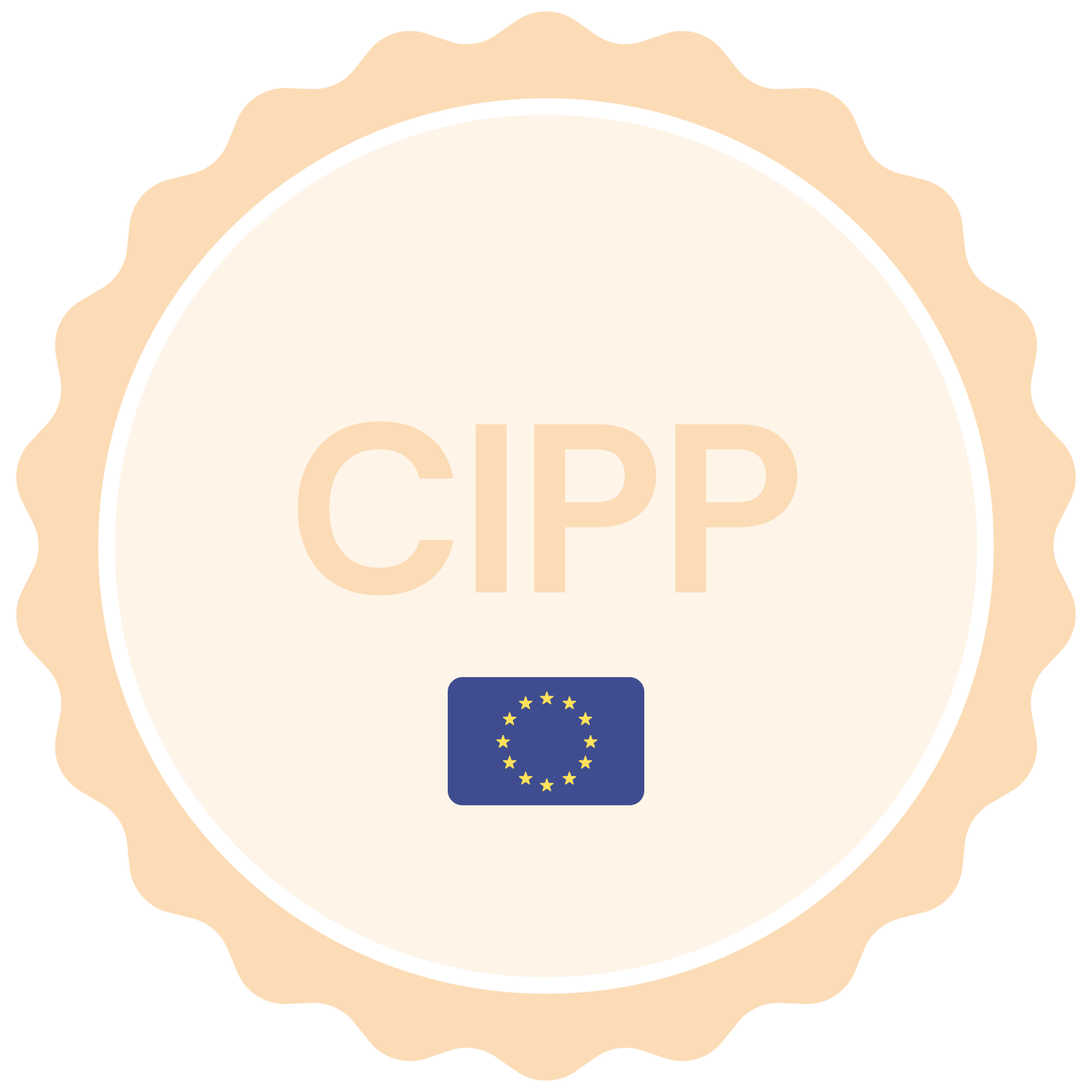With European hegemony in the privacy and data protection field continuing apace, it is more important now than ever for all working privacy professionals to understand European data protection regulations. If you are just beginning your professional journey in data protection—or if you are a seasoned veteran—understanding key European laws such as the General Data Protection Regulation (GDPR) is paramount. A great way to show your understanding and expertise of European data protection rules is by obtaining the Certified Information Privacy Professional / Europe (CIPP/E) certification.
The CIPP/E certification is administered by the International Association of Privacy Professionals (IAPP), a U.S.-based non-profit organization that has a global reach. The certifications administered by the IAPP are the most highly desired professional certifications globally in the field of information privacy and data protection. They represent the gold standard for privacy professionals.
The CIPP/E certification indicates that you are a subject matter expert in European data protection laws and regulations. It signifies that you understand the legal framework that governs the collection, storage, processing, sharing, and disclosure of personal data. In addition, it shows that you have a foundational understanding of global concepts related to privacy and data protection. This includes an understanding of regulation and enforcement models, as well as core privacy-related concepts. The CIPP/E certification can be thought of as the “what” of European data protection—what data needs to be protected, what laws apply, what are the consequences for non-compliance, etc.
What is Required to Obtain and Maintain the CIPP/E Certification?
The IAPP requires that you successfully complete a qualifying exam to obtain CIPP/E certification. This qualifying exam is a 90-question, multiple choice test that you have two and a half hours to complete.
You need not have a certain number of years of professional experience or any other prerequisites to sit for the CIPP/E certification exam. This makes obtaining the CIPP/E certification a great way for professionals to break into the data protection profession.
After passing your qualifying exam, you must maintain your certification by completing 20 hours of Continuing Privacy Education (CPE) every two years. In addition, you must pay an annual “certification maintenance fee” of $250, although this fee is waived for IAPP “members.”
- Learn about the costs of IAPP certification by visiting our article "What Are the Costs of IAPP Certification?"
What Are the Benefits of CIPP/E Certification?
With a CIPP/E certification, you set yourself up for professional success. Those with CIPP/E certification are paid more than their peers without the certification. And with increasing frequency, job postings indicate that a CIPP/E certification is either required or preferred for roles in the data protection field. This is true across varying geographic areas, professions, and industries.
A CIPP/E certification can help professionals in the legal, consulting, human resources, and other fields. Likewise, the CIPP/E certification is sought by companies in the healthcare, finance, information technology, and many other industries.
To get a sense of how valuable this certification is for potential job seekers, let’s look at some numbers. Based upon a recent search across three of the leading job boards, the CIPP certification was listed as a preferred or required credential in the following number of job postings:
- PrivacyJobBoard.com: 199 jobs
- LinkedIn Jobs: 2,508 jobs
- Indeed: 1,383 jobs
- Simply Hired: 522 jobs
- Total: 4612 job listings seeking CIPP/E certified candidates
Professionals certified by the IAPP also earn, on average, significantly more than their non-certified peers. According to a recent survey (access for IAPP members only), certified professionals with one IAPP certification earn about $5,000 more per year than their non-certified counterparts, while those with multiple IAPP certifications earn up to $15,000 per year more than their peers.
Data protection professionals are also satisfied with their jobs. The same IAPP survey noted above found that privacy professionals had a job satisfaction score of 7.3 (out of ten). The biggest driver of that satisfaction was how interesting the work is.
Who Typically Obtains the CIPP/E Certification?
The CIPP/E exam focuses heavily on regulations and directives passed by the government of the European Union. The GDPR is the biggest focus, but the exam also covers the Law Enforcement Data Protection Directive, the ePrivacy Directive, and other laws. It is little surprise then that many people who obtain CIPP/E certification have a background in the law.
But don’t be scared away if you are not a lawyer. We have trained many students for the CIPP/E certification exam that have backgrounds in accounting, consulting, IT, human resources, marketing, and other fields.
As would be expected, the CIPP/E certification is more commonly held by those in Europe than those based elsewhere. Among European-based respondents to a recent IAPP survey, 67% had obtained the CIPP/E certification. With the extraterritorial reach of the GDPR, however, the CIPP/E certification remains popular outside of Europe. In that same survey, 27% of U.S.-based respondents held the CIPP/E certification.
What is Tested on the CIPP/E Exam?
The IAPP sets forth the curriculum for each of the exams it administers in two documents: (1) the Body of Knowledge; and (2) the Exam Blueprint. Each of these documents is updated annually.
The Body of Knowledge is the outline of all concepts and topics that candidates will need to know to obtain their certification. The Exam Blueprint, on the other hand, tells students how heavily certain areas in the Body of Knowledge are tested.
The CIPP/E Body of Knowledge has three primary knowledge “domains”:
- (1) Introduction to European Data Protection;
- (2) European Data Protection Law and Regulation; and
- (3) Compliance with European Data Protection Law and Regulation
As noted above, the topics included in the three primary domains will be tested in multiple choice format. There are two different types of questions that appear on the CIPP/E exam. The first are straight forward questions testing specific knowledge. The second type of question requires application of knowledge. Test takers are presented with a short fact pattern, followed by questions asking them to apply privacy-based knowledge.
- Learn more about what it takes to pass the CIPP/E exam by visiting our explanatory article “What is a Passing Score on IAPP Exams?”
What Comes with Privacy Bootcamp’s CIPP/E Test Preparation Course?
At Privacy Bootcamp, we have designed our CIPP/E test preparation course to be a comprehensive, all-in-one training resource. Our course comes with the following:
- An e-textbook study guide broken down into more than 120 guided learning modules
- More than 850 digital flashcards
- A bank of more than 650 practice exam questions
- 10 digital exercises
- A quick reference “cheat sheet” that pulls out the important points of each study module and provides a concise outline of what you need to know to find success
- A live-exam environment that is modeled after the actual exam software, which allows our students to take practice exams under real-world conditions
You can see how we’ve organized our CIPP/E course by visiting the Preview Page or the CIPP/E Preview Page and clicking on “Table of Contents” button on either page.

